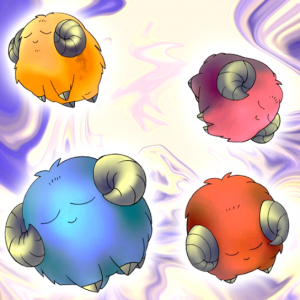In Yu-Gi-Oh!, "Goat Format" and "Edison Format" are played a lot as "Throwback Duels".
In the Magic community, you might see players talk about "Limited" and "Advanced" formats.
But what exactly is a format, and why are they important to card games?
What is a Format?
A "Format" can be defined as "A set or subset of rules within a game, which primarily uses only components from that game". That's pretty abstract, so let me explain:
Think of a deck of playing cards - You know, the 52 card decks with the ace of spades and so on. So, what are the rules of "Playing Cards"? In short, there are different variants of "Playing card games", but no universal ruleset for "Playing Cards". We could play Poker, or Bridge, or Snap, or Speed. All of those games are pretty different, but they use the same components - They all use the same deck of 52 cards. Each of those games - Poker, Bridge, Snap, Speed - Is a different format of play.
Trading card games don't all use the same deck of cards - The point of such games is to for players to create their own deck. But these games do have different formats. In Magic, there are lots of different formats. For example, there's Standard and there's Vintage. Vintage Magic is a little like Yugioh: The only thing that makes Vintage different to the rest of Magic is its banlist of cards. Outside of that, it's possible to play with any of the cards in the entire game. In Standard, there's (usually) no banlist at all. Instead, players are only allowed to play with the most recently printed cards. Both of these are the same game, but they're different Formats of that game.
So, if I ask you to play a game of Magic with me, I'm asking lots of different questions at once. I should really specify which format we play in - Standard or Vintage - Or any of the other available formats (there are almost 10 commonly played formats). The same applies to the Pokemon TCG. In Pokemon, there's Standard and Extended as well as some others. It's like the earlier example with playing cards: they're all the same components from games (in this case, trading cards), but they're different formats of those games.
Formats in Yugioh
Yugioh treats formats differently. For many yugioh players, a "Format" is just a certain period of time in the game's history - "Goat Format" refers to the April 2005 banlist, and "Goat Format" is simply a replica of how the game was in that period of time. "Edison Format" refers to the metagame played in the 75th Shonen Jump Championship in 2010. "Edison Format" is also a replica of how the game was in that period of time. No new cards are added to these formats, and they play with the exact rulesets used at that time (Drawing on the first turn etc).
As a result of this, these formats are "Frozen in time", as opposed to Magic and Pokemon's commonly played formats, which evolve over time - Vintage Magic changes a little every time a new relevant card is printed. Extended Pokemon is also affected in such a manner. But these typical "Older Yugioh formats" never change. Goat Control today is the same as it was in 2005, and the same as it will be in 3005.
Does this mean that Yugioh doesn't have the capacity for these formats? Of course not. Just like any game, it's possible to alter the rulesets and card pool to create a new format. But is there a point?
Why Formats are Good for Games
Choice
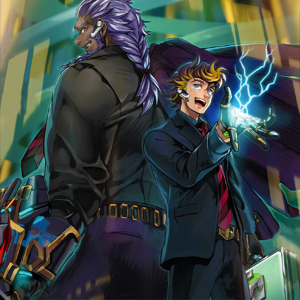 Bored of this guy? Try out a different format until he gets hit!
Bored of this guy? Try out a different format until he gets hit!Playing in a format doesn't restrict you to just that format. It's possible to play more than one type of format. I'd even advise players to try out more than one type of format. This is especially relevant during stagnant metagames. Is the format you usually play currently dominated by an overplayed deck? Change it up a bit and play something else, whether is be Goat Control or Trinity.
As a result of this new-found choice, different formats can create specific scenarios directed towards playstyles. For example, some players find "Burn" decks unfun to play against. This is simply because the strategy of "Burn" doesn't often fit in with the intended playstyle of non-burn formats. As a result, a format specifically created with "Burn" decks in mind would prove to be an enjoyable play experience, since it was literally engineered to be enjoyable for that sort of playstyle.
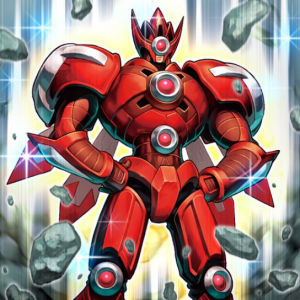 T R I N I T Y
T R I N I T YCommunity
Commander is the Number 1 Casual format for Magic Players. The Command Zone podcast has as many subscribers as the most popular Yugioh strategy channels. However, the format wasn't designed by the company that designs Magic cards - instead, it was designed by the Magic Community (Specifically, a group of bored judges). This goes to show how a game's community shouldn't be held back by the "standard" rules of the game.
The writer of this article (TreeTopDuelist) initially designed the Trinity Format, which is a Community-based format for Yugioh. Many of my previous articles are about Trinity - You can check out an introduction to the format here.
Creativity
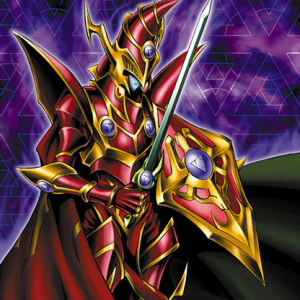 Good in slower formats, useless in faster ones.
Good in slower formats, useless in faster ones.Many Card Game collectors and players own an absurd amount of "unplayable" cards: Cards which aren't used in any recent decks or strategies. However, in alternate formats new life can be breathed into these older or otherwise worthless cards. Some formats are even created with the intent of only using such cards.
In a different light, simply having a different metagame causes new cards and techs to be discovered. Maybe it's a key component of a "meta" deck in this new format. Maybe it's a card which is only useful because of a newer ruleset. Maybe it's a card which was always good, but oppressed due to a metagame in the more commonly played formats. Regardless, this variance in creativity can be both fun and engaging for everyone - Deckbuilders and Competitive players alike!
Limited and Constructed
Most players are used to "Constructed" formats. A "Constructed" format is any type of Card Game where you bring your own deck the table - So far, this article has only discussed Constructed formats.
On the flipside, a Limited format is any game where you don't start the game with your own deck. Instead, you have to build it on the spot! If you've ever played in a Yugioh prerelease, you've played a Limited format before. In a Prerelease, you don't start the day with any cards. Instead, you open some booster packs of cards and make a deck out of only those cards.
Draft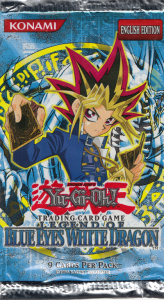
The above is often regarded as a "Sealed" Limited format. Players start with sealed packs or cards, open all of them straight away, and make a deck out of them. There are many other types of Limited format, such as Cube or Booster Draft. In Draft, players don't open all of the packs straight away. Instead, each player (usually in groups of 8) opens 1 pack of cards, takes 1 card out of that pack, and passes the rest of the cards to the player on their right. They then look at the new cards presented to them (by the player on their left) and repeat the process: take a card out, then pass the rest of the cards to your right. Repeat this process about 40 times (With 3 or more booster packs!) And you have a completed deck of cards to play with.
A "Cube" is another type of Draft format - It works exactly as stated above. However, instead of opening Booster packs of cards, Cube players open cube packs of cards. The cube itself is 360 pre-selected cards which are all shuffled together. A cube pack is 16 of those cards taken out at random. Cubes are often more fun, as the cards inside often have more synergy with each other - The cube has been designed by a player. It can be enjoyable to simply design a cube in your spare time. It's like building a 360 card deck!
Why play in Limited Formats?
Limited is always a "new" environment - Even if everyone involved knows what all of the cards in the booster packs are, it's impossible to know what kind of deck everyone will end up with. Maybe a certain player opened lots of cards from a specific archetype - maybe another player opened a bunch of cards which they've never seen before! Limited always offers new gameplay. It can also be seen as less expensive than most Constructed formats, since there is no need to spend $200+ on a deck - instead you only need a few packs of cards. In Booster Draft you even get to keep the cards at the end: maybe you opened a card which is worth more money than the price of the boosters!
Why play in Constructed Formats?
Constructed Formats offer more in terms of deckbuilding. In Limited, a player's card pool is only 40 or so cards, which doesn't offer a massive amount for deckbuilders. Constructed formats often have thousands of cards in the card pool, making deck building more enjoyable and strategic. Constructed also creates a more defined metagame: Decks are built to counter other decks in the metagame. As a result, players know what they're up against which can make games more predictable.
Anticipating Formats
Discussing cards, metagames and formats is a pastime of both casuals and competitives alike. Which cards are too strong? Which cards are too weak? Every day, hundreds of questions about the TCG's metagame are asked on the /r/yugioh subreddit. Although everyone has a right to an opinion, there's a golden rule to this: If you haven't played with the cards, your opinion on them might not be accurate.
This is a rule which everyone breaks, as controversial topics are always the most talked about. Some cards, such as Forge of the True Dracos, caused an uproar when they were first announced. "A card which shuffles everything on the field into the deck!? Insane!" However, when the card was actually released to the TCG, it had no impact on the metagame in the slightest. Although the effect of the card seemed very good on paper, it just wasn't consistent enough to see play. Although the example with Forge of the True Dracos only concerns the TCG, the same misunderstandings happen cross-format.
Games Change - And so do formats.
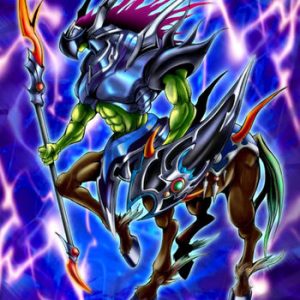 Trivia: There were no premier events without CRV and with Exarion, although Goat players still include Exarion to this day.
Trivia: There were no premier events without CRV and with Exarion, although Goat players still include Exarion to this day.Imagine a player who is good at the game (in the TCG), but has only been playing since 2017. To this player, Yugioh is a fast-paced game. Turns take a little while since most of it is performing a combo. Decks are mostly composed of cards in the same archetype - "SPYRAL" decks have lots of "SPYRAL" cards in them. "Zoodiac" decks have lots of "Zoodiac" cards in them.
What do you think this player would think of the 2005 Goat Control format? D.D. Warrior Lady is a good card in that format, although a player who has experienced only fast-paced, combo-based formats might not think so. Magician of Faith is a Flip monster. Exiled Force is a one-for-one who uses up the turn player's Normal Summon. And Exarion Universe? An 1800 ATK monster who... an lower its own ATK? To do piercing damage?
Although Magician of Faith and company are staples in Goat Control, this is clearly not evident to players inexperienced in the format. Until you play in a format, it's difficult to actually have an accurate grasp of what the format entails, and as to why certain cards are played.
How to Analyse Formats
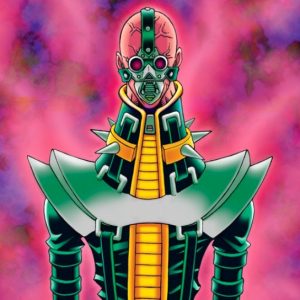 Can you believe that Jinzo used to be the face of the metagame?
Can you believe that Jinzo used to be the face of the metagame?The only way to truly understand a Format is to play it a lot. Even so, here are some useful questions to ask when entering a new format or metagame:
How fast is the format?
The speed of a format usually indicates whether or not Trap cards are playable or not. In turn, this can lead you to assume what other cards may or may not be useful. For example, very slow formats may lead players to include Jinzo in their decks. Very, very fast formats often revolve around OTKS and unbreakable boards.
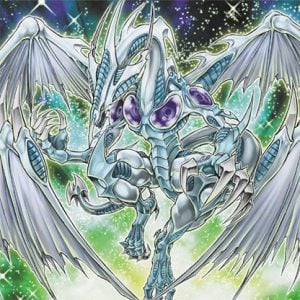 Turn 1 Stardust Dragon used to be a very powerful opening in some older formats.
Turn 1 Stardust Dragon used to be a very powerful opening in some older formats.What does the metagame look like? How diverse it it?
The metagame of a format can also help in analysis. This mostly will assist in deckbuilding: knowing which cards to play in order to counter the top-tier decks is imperative. What are the commonly played combos or themes? Should I be expecting an Extra Deck monster on the first turn? How can I counter that monster going first? How can I counter it going second?
If the metagame is very diverse, it's useful to have a more broad sidedeck. Instead of countering one specific card, try to counter a specific playstyle. Learn the weaknesses of the deck you want to play, and learn to counter those weaknesses.
What are the staples?
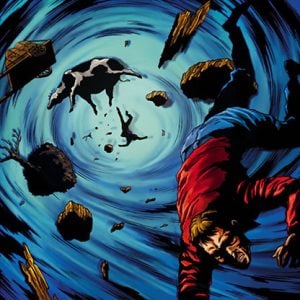 Formats featuring Heavy Storm are often very different to those without.
Formats featuring Heavy Storm are often very different to those without.This is another must for deckbuilding: staple cards, which are played in almost every deck, can give you ideas about how the format uses card advantage. They can also allude to the speed of the format. What makes those cards staple? Are they just "good" cards, or do they help counter a Meta Deck? Are they staple in other formats? How can I be prepared to face them?
What makes this format different to the one I am used to playing?
This is likely the most important question to understand. What makes this format different to the one I am used to playing? This mostly goes to ask what the card pool and rules looks like. Are you used to certain strategies which exist in your usual format? Do those cards, decks, and strategies apply here? If they don't, the format might be quite alien.
But don't be dissuaded! Experiencing new things is a key way to finding enjoyment in games!
Conclusions
Games don't have to just be what's written in the rulebook. One of the fundamental features of a game for it to be enjoyed - regardless of it being in a tension-ridden tournament setting or with some friends on your kitchen table. Experimenting with new rulesets and ways of playing the game can be a refreshing way to relive an older game, or to pass the time during a stagnant metagame.
The best part of Formats within games is seen in how they're not imperative and often don't require any dedication. Goat Control decks can be very cheap and since it's often a casual format, the most expensive components can be proxied. Building a Yugioh Cube can involve just common cards you have lying around. And if you try out a format, but don't enjoy it? You can move on to something else!
I hope that after reading this, you're inspired to try out a new way to play - whether it be a Limited format or a Constructed format, there's something in the game for you to enjoy. If you enjoy high-power throwback formats, it might be worth checking out the Konami Traditional format. If you're into something more community-made, the more diverse Trinity Format might be to your liking.
Until next time - Stay Groovy!

